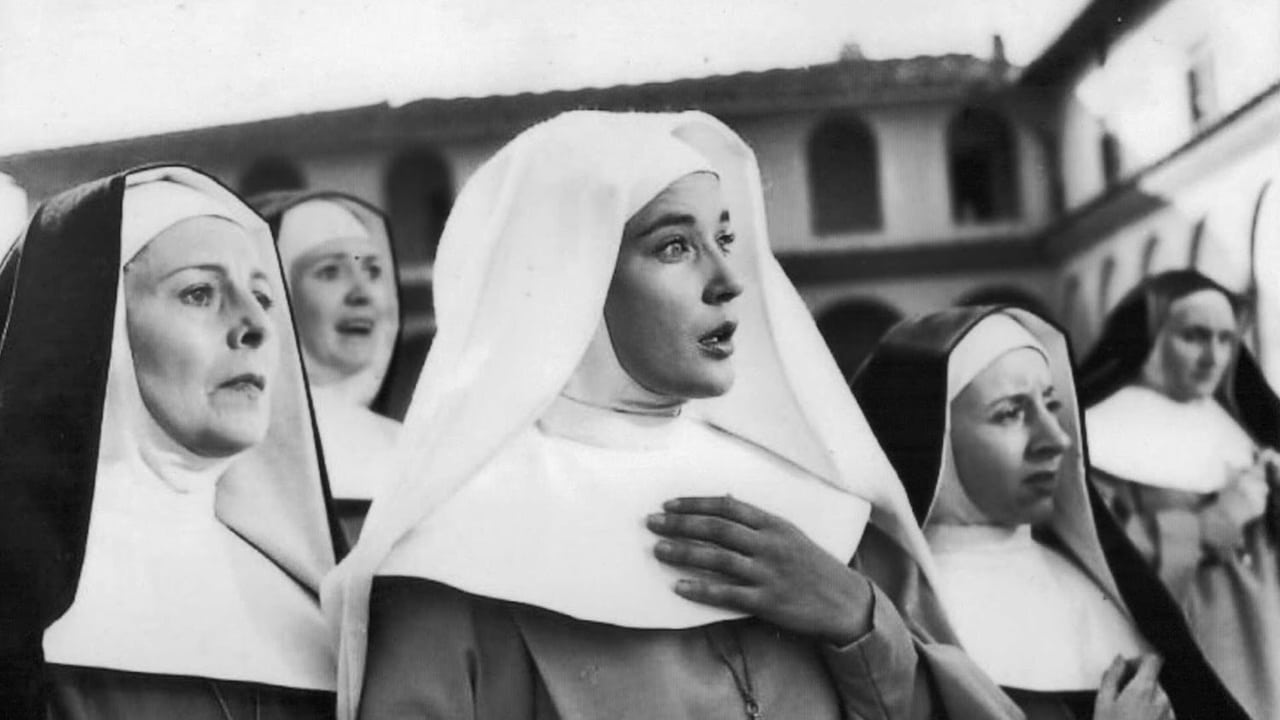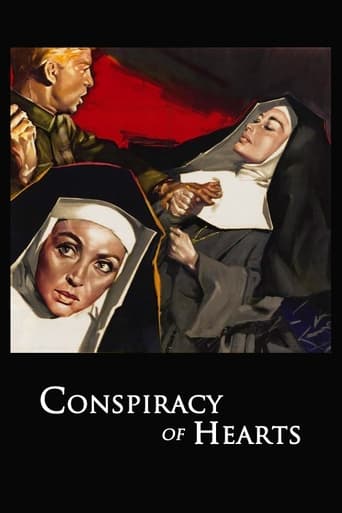

If the ambition is to provide two hours of instantly forgettable, popcorn-munching escapism, it succeeds.
... View MoreBlending excellent reporting and strong storytelling, this is a disturbing film truly stranger than fiction
... View MoreIt's the kind of movie you'll want to see a second time with someone who hasn't seen it yet, to remember what it was like to watch it for the first time.
... View MoreThere's no way I can possibly love it entirely but I just think its ridiculously bad, but enjoyable at the same time.
... View MoreThis is one of those films that are impossible to overrate. Everything is overwhelmingly good about it - the story, the acting, the music, the photography, the direction, the suspense and the universal message - it's simply 100% all the way and heart-rending at that - it almost becomes unbearable at certain moments when the children have their say.It's interesting to observe, that Lilli Palmer and Albert Lieven met once before in leading roles in the screening of Stefan Zweig's "Beware of Pity" 13 years earlier. In that film Albert Lieven was an Austrian officer at the mercy of Lilli Palmer as an invalid terrorizing her environment, and somehow Lilli Palmerr repeats her feat of getting the upper hand of the officer also here but in a very different manner - here she is the survivor. This is also one of those films that always should be reminded of, as its message couldn't be more sincerely and timelessly vital, how human concerns always must be the main priority in life however hard and pressing the circumstances, and that it's only the heart that can lead you right.
... View MoreThis is a very moving film about the war and the life of nuns during the period. The story line is completely believable and real. Lilli Palmer always gives an excellent performance and Yvonne Mitchell is very interesting to watch, as she learns to appreciate the value of saving the children. The climax at the end of the movie with the anticipated shooting is very moving to witness. This movie was a rare one for me to become teary!! That is a sign to me that it is very good.
... View MoreRalph Thomas and Betty Box belong so firmly to the tale of the British cinema's protracted postwar decline, and their output runs so much to cheerful mediocrity and worse, that it would be churlish not to salute this exception.A film about a mixed European bag of nuns in sunny Italy, sheltering Jewish children from nasty German occupiers, could have easily wound up as sticky or preachy as a Hollywood movie of the week or after-school special "endorsed by the National Education Association". This production does quite a bit better.To begin with, the couple took the commercially bold decision to shoot in dramatically suitable monochrome (Rank was very into Technicolor) despite the temptation of those gorgeous locations near Florence. Next, Rank's addiction to polyglot casts proves acceptable, since the nunnery and the Cahtholic church are multinational, as is the war situation: the convention of Colonel Albert Lieven talking in Teutonically accented English and others in Italianate English does not distract.Thirdly, the cast is well chosen. Sylvia Syms, a rising English rose, was the novice. Michael Goodliffe was a familiar officer/vicar type, decent and tense as the nuns' protective priest. Lilli Palmer, that quintessentially cosmopolitan star, is apt (if a little too soigne) as Mother Superior. Ronald Lewis as the Italian major torn between allegiance to the Axis and revulsion at its persecutions, patronised by Lieven and a worm about to turn, is his customary sombre self. (Both Lewis and Goodliffe were suicides).Fourthly, the mise-en-scene is ideal for moral conflicts: sunny exteriors and open hillsides against the shadowy cloister and catacombs where the hunt for hidden escapees from a concentration camp culminates. Thomas is no Bresson or da Sica, but he makes good use of his lighting cameraman, and in his workmanlike way keeps the tension boiling. The religious angle (with its dilemmas of obedience, confession and incompatible loyalties) is deftly threaded through the chase to raise the tone.For a 'U'-certificated production there is an unholy amount of screen time leading up to, and about, killings and executions: it's about younger children but not for them.As always, Box and Thomas are craftsmanlike, most to be praised for the mistakes and ineptitudes they avoid.This is not "The Sound of Music" sans music. The storyline is not muffled by subplots, the enemy are not caricatured (Lieven convincingly depicts a non-Nazi career officer, forced into exemplary cruelty by his force's isolation amid partisans) and the slither into sentimentality is avoided nearly all the time. This is the price the script willingly pays for not characterising the children much; on the other hand, the issue of whether nuns gladly harboured Jews and made concessions to Judaism under a Christian roof is not shirked.Adrian Scott, a member of the Hollywood Ten, outlined a plot based on real incidents which was worked up by Marsha Hunt's longtime husband, Robert Presnell Jr. It was unusual for the Pinewood team to work with Americans, who may have helped keep the film's political aspects uppermost-- and, as it were, salted it with some asperity, so that it plays pretty smartly and kitsch-free today.Barney Balaban of Paramount saw its premiere while in London and paid Rank handsomely for the rights on impulse. The film fared well in an America not yet used to stories of Nazi anti-Jewish actions: the Auschwitz trial and Eichmann's capture would soon make them too familiar. In Britain, "Conspiracy of Hearts" was one of 1960's top grossers alongside Ralph's and Betty's latest "Doctor" film. Sadly, the latter would be much more typical of them thereafter.
... View MoreAn appropriately solemn and always very compelling Holocaust era film, it is quite competently acted, especially by the child actors and actresses, who give off realistic and believable performances. In particular, Rebecca Dignam stands out as a child who the nuns take a special liking to. The plot line sounds rather ordinary but it works well, providing a fine and interesting tale. The film is, however, a bit too melodramatic, and on top of that it ends unrealistically. But for what it is, it is very good. Based on a story by Adrian Scott, it went credited to Dale Pitt due to blacklisting, but either way Robert Presnell Jr.'s screenplay is generally fine.
... View More